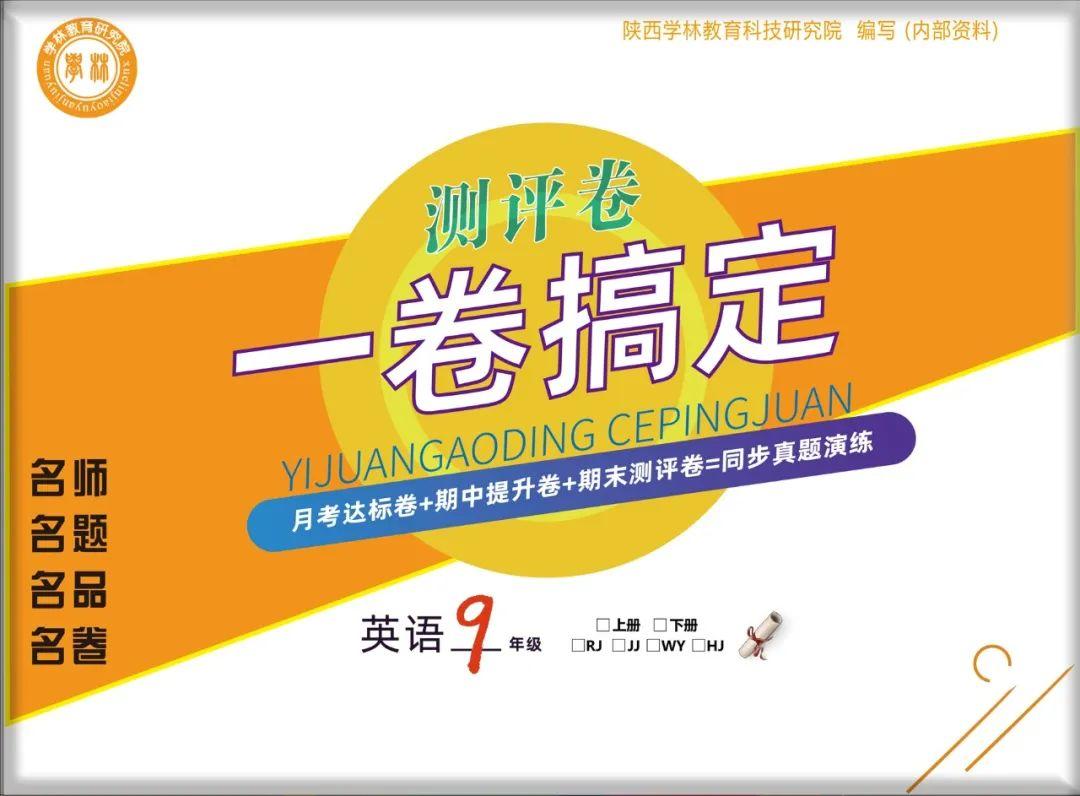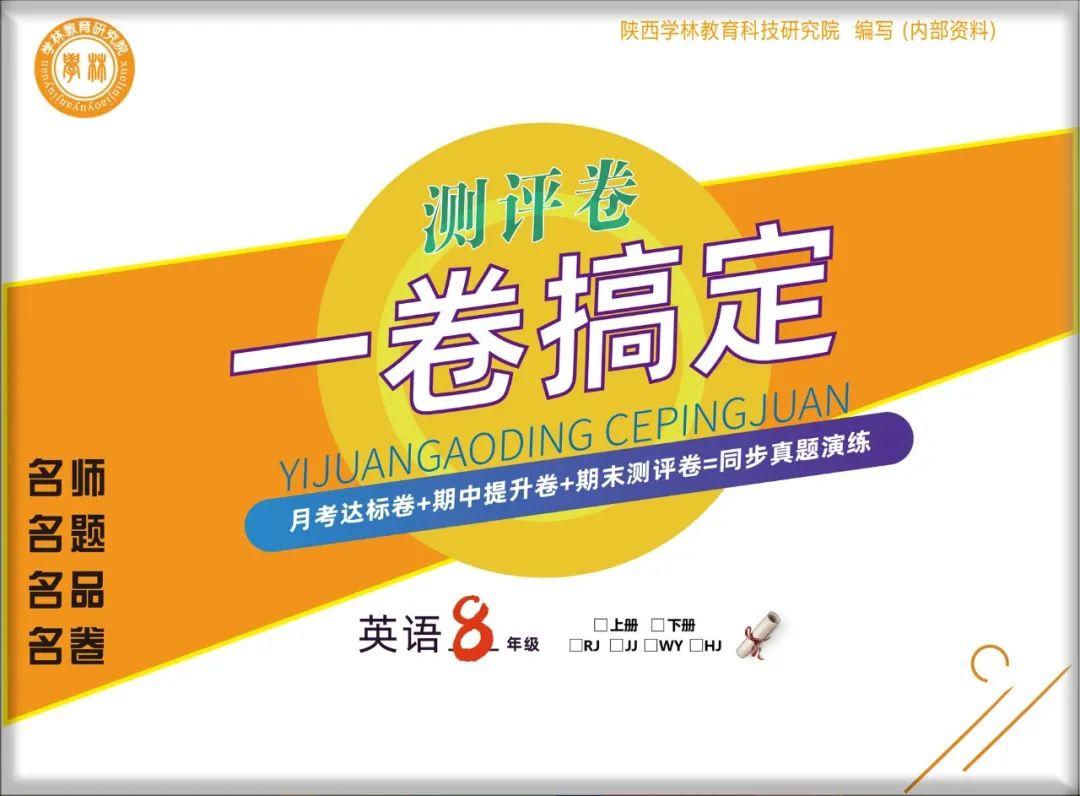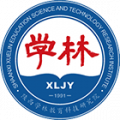【月考专栏】九年级英语上册一次月考知识点汇总!



1. have conversation with sb. 同某人谈话
2. too…to… 太….. 而不能…
3. the secret to… …..的秘诀
4. be afraid of doing sth./ be afraid to do害怕做某事
5. look up查阅
6.repeat out loud大声跟读
7. make mistakes in在….方面犯错误
8. connect …. .with…把…..与 …..连接/联系起来
10. be stressed out焦虑不安的
11. pay attention to注意;关注
12. depend on取决于;依靠
13. the ability to do sth. 做某事的能力
【单元知识点】
1. by + doing 通过….方式 (by是介词,后面要跟动名词,也就是动词的ing形式)
2. talk about谈论,议论,讨论
The students often talk about movies after class.
3.提建议的句子:
①What/ how about +doing sth.?做..怎么样?(about 后面要用动词的ing形式)
如: What/ How about going shopping?
②Why don’t you + do sth.? 你为什么不做…?(注意:标红的部分用的是动词的原型)
如: Why don’t you go shopping?
③Why not + do sth. ?为什么不做…?(注意:标红的部分用的是动词的原型)
如:Why not go shopping?
④Let’s+ do sth.让我们做… 吧。(注意:标红的部分用的是动词的原型)
⑤Shall we/ I + do sth.?我们/我… 好吗?
如:Shall we/ I go shopping?
4.a lot许多,常用于句末。
5. too…to… 太…而不能…
常用的句型: too+形容词/副词+ to do sth.
如: I’m too tired to say anything.我太累了,什么都不想说。
6. aloud,loud与 loudly的用法,三个词都与“大声”或“响亮”有关。
①aloud是副词,通常放在动词之后。
②loud可作形容词或副词。用作副词时,常与speak、talk、laugh等动词连用,多用于比较级,须放在动词之后。
③loudly是副词,与1oud同义,有时两者可替换使用,可位于动词之前或之后。
如He does not talk loudly or laugh loudly in public.她不当众大声谈笑。
如:I like milk very much,I don’t like coffee at all.我非常喜欢牛奶,我一点也不喜欢咖啡。
not经常可以和助动词结合在一起,at all则放在句尾。
8. be / get excited about sth.对…感兴奋
9.①end up doing sth.终止做某事,结束做某事
如:The party ended up singing.晚 会以唱歌而结束。
②end up with sth…..以…结束 (注意介词with)
如:The party ended up with her singing.晚 会以她的歌唱而告终。
10. first of all首先(这个短语可用在作文中,使得文章有层次)
11. also 也、而且(用于肯定句)常在句子的中间;either也(用于否定句)常在句末;too也(用于肯定句)常在句末。
12. make mistakes犯错
make a mistake犯一个错误
13. laugh at sb.笑话;取笑(某人)(常见短语)
14. take notes做笔记,做记录
15. enjoy doing sth .喜欢做…,乐意做…
如:She enjoys playing football.她喜欢踢足球。
enjoy oneself过得愉快
16. native speaker说本族语的人
17. make up组成、构成
18. one of the+形容词最高级) +名词复数形式 其中之一(这一题主要考两点,一是最高级,一是名词复数)
如:She is one of the most popular teachers.她是最受欢迎的教师之一。
如:It’s difficult (for me)to study English.对于我来说学习英语太难了。(句中的it是形式主语,真正的主语是to study English)
20. practice doing练习做某事(注意:practice后面接动名词)
如:She often practices speaking English.她经常练习说英语。
21. decide to do sth.决定做某事
22. unless 假如不,除非:引导条件状语从句。
如:You will fail unless you work hard.假如你不努力你会失败。
23. deal with处理
24. worry about sb./ sth.担心某人/某事
如:Mother worried about his son just now.妈妈刚才担心他的儿子。
25. be angry with sb.对某人生气
26. perhaps = maybe也许
27. go by (时间)过去.
28. see sb. / sth. doing看见某人正在做某事(如果是看到正在做什么,要用动词ing形式)
see sb. /sth. do 看见某人在做某事
如:She saw him drawing a picture in the classroom.她看见他正在教室里画画。
29.each other 彼此
30.regard… as ….把…看作为…
31.too many 许多,修饰可数名词,如: too many girls。
too much许多,修饰不可数名词,如: too much milk
32.change… into…将 …变为.. .
33. with the help of sb. =with one’s help在某人的帮助下(注意介词of和with)
如:with the help of LiLei = with LiLei’s help在李雷的帮助下
34. compare … to ..把… 与…相比
35. instead 代替,用在句末,副词
instead of sth ./ doing sth.代替,而不是(of后面跟动词,要用动名词形式,也就是动词的ing形式)
如:I will go instead of you.我将代替你去。
1. the Lantern Festival元宵节
2. the Dragon Boat Festival端午节
4. be fun to watch看着很有意思
7. in two weeks两星期之后
8. be similar to…与…相似
9. end up最终成为;最后处于
10. share sth. with sb.与…… 分享…..
12. one…,the other…(两者中的)一个….,另一个……
13. take sb. out for dinner带某人出去吃饭
15. haunted house鬼屋
16. call out大声呼喊
17. remind sb. of sth.使某人想起
18. sound like 听起来像
19. treat sb. with sth.用……对待某人
20. the beginning of new li新 生命的开始
【重点句子】
1. I think that they’re fun to watch.我认为它们看着很有意思。
2. What do you like about… ?
What do you like best about the Dragon Boat Festival?对于端午节,你最喜欢什么?
3. What a great day!多么美好的一天!
4.I wonder if…
I wonder if it’s similar to the Water Festival of the Dai people in Yunnan Province.我想知道它是否与云南傣族的泼水节相似。
5. How+adj. /adv.+主+谓!
How fantastic the dragon boat teams were!龙舟队多棒啊!
6. What do/does+sb. + think of sth. ?
What does Wu Yu think of this festival?吴宇觉得这个节日怎么样?
1. What + a(n) 形容词+可数名词的单数形式(+主语+谓语+其他)!多…….!
2. How +形容词/副词(+主语+谓语+其他)!多么…..!
3. be going to…将要/打算….
4. in +时间段 …..后
5. give sb. sth.给某人某物;把某物给某人
6. plan to do sth. 计划做某事
7. refuse to do sth.拒绝做某事
8. one of+名词复数形式….之一
【语法归纳】
②由that引导表示陈述意义,“that ”可省略。
He says (that) he is at home.他说他在家里。
③由“if,whether”引导表示一般疑问意义(带有是否、己否、对否等)
Do you know what he wants to buy?你知道他想要买什么吗?
⑤从句时态要与主句一致
当主句是一般现在时,从句根据情况使用任何时态;
当主句是一般过去时,从句应使用过去某时态(一般过去时,过去进行时,过去将来时,过去完成时)。
He said (that)he was at home.他说他在家里。
I didn’t know that she was singing now.我不知道她正在唱歌。
She wanted to know if I had finished my homework.她想要知道我是否已经完成了我的作业。
Did you know when he would be back?你知道他将会什么时候回来吗?
二、感叹句
由what 引导的感叹句,其句子结构可分为以下三种:
1.可用句型:“What + a/an+形容词十可数名词单数(+主语+谓语+其他)!”。如:
What an interesting book it is!这是一本多么有趣的书啊!
2.可用句型:“What +形容词十可数名词复数(+主语+谓语+其他)!”。如:
What good children they are!他们是多么好的孩子啊!
3.可用句型:“What +形容词+不可数名词(+主语+谓语+其他)!”。如:
What important news it is!多重要的新闻啊!
1.可用句型:“How +形容词/副词(+主语+谓语+其他)!”。如:
How fast he runs!他跑得多快啊!
2.可用句型:“How +形容词十a/an 十可数名词单数(+主语+谓语)!”。如:
3.可用句型:“How +主语+谓语!”。
由what 引导的感叹句与由how 引导的感叹句有时可以转换,但句中部分单词的顺序要有所变化。如:
How beautiful a girl she is!= What a beautiful girl she is!
What delicious cakes these are! =How delicious thesecakes are!


1.stomach n.胃,腹部
2.regret v.后悔
3.feve n. 发烧
4 examination n.检查,考试
5.pain n. 疼痛
7.dentist n.牙医
8.x-ray n.X光,X射线
9.refuse v.拒绝
10.toothache. n. 牙痛
11.German adj.德国的;n.德国人,德语
12.corn. n.玉米
13.bean n.豆子
14. Asia n.亚洲
Africa n.非洲
America n. 美洲
Europe n.欧洲
15.include v.包括 ,包含
16. smoke n&v.烟,吸烟
22.somebody pron. 有人,某人
24.telephone n. 电话
25.hers pron. 她的(物品)
26.cheer n& v.欢呼,喝彩
27.kick v.踢
28.pity n.遗憾
29.sleepy adj.困倦的,瞌睡的
30.mention v.提及,写到
二、key phrases(重点短语)
1.regret doing sth:后悔做了某事
2.get/have a fever 发烧
3.take an X-ray照 X光片
4.go to the dentist看牙医
5.have no choice but to do别无选择只能去做某事
7.millions of…数以百万的…
10.get into the habit of…养成…的习惯
11.stay away from…远离…
12.be unable to do sth.不能去做某事
13.focus on集中于,致力于
14.take out取出,拿出
15.so that为了,以便
三、Grammar(语法)
情态动词的用法
情态动词: can/could;may/might;should;must,need.
1.情动+V原形
eg: He can play football.
2.注意情态动词must的一般疑问句:
eg: -Must I finish my homework now?
—No, you needn’ t./No, you don’t have to.(备注: must not=mustn’t 禁止)
successfully adv. 成功地
succeed v.取得成功
4.missing adj.缺少的,丢失的
7.solve v.解决
8.pioneer n.先锋,先驱
9.introduction n.介绍,引进
13.writer n. 作者,作家
15.deaf adj.失聪的 ,聋的
17. ability n.能力
18.progress n.进步,进展.
23.medical adj.医疗的,医学的
24.anybody pron. 任何人
25.chemistry n.化学
二、key phrases(重点短语)
1.succeed in doing sth.在….. 取得成功;顺利完成
3.in the field of. ..在… .领域
4.pass away去世,逝世
6.make (a lot of )progress取得(巨大)进步
7.be well known for=be famous for因..而闻名,众所周知
10.set up建立
11.based on以…为基础,基于….
三、Grammar(语法)
状语从句
1.when/after/before引导的时间状语从句;
2.if引导的条件状语从句(主将从现);
3.where引导的地点状语从句;
4.because引导的原因张语从句;
5.though/although/even if 引导的让步状语从句。


1.wonders of the world世界奇观
natural wonders 自然奇观
man-made wonders 人造奇观
2.join in参加;加入(活动)= take part in
3. I’m not sure我不确信
4. agree with sb.同意某人的看法
agree to do sth同意做某事
5. on the eastern coast of在…的东海岸
6. in one’s opinion据某人看来;按某人的意见
7. more than = over多于,超过
8. produce electricity 供电
9. millions of数百万的;数以百万计的
10. would like to do sth. = want to do想做某事
would like sb. to do sth.想要某人做某事
11. early morning大清早
12. become grey变成灰色
13. get out of 从…出来
14. go through 意为“穿过,强调从物体内部穿过;从头至尾的练习
15. fall away突然向下倾斜
16. look over从(某物上面)看过去;仔细检查
look across 眺望
look down to俯视;向下看
18. at the bottom of在….的底部
19. on both sides在两边
20. be famous for意为“以…而闻名”
21. do an interview做采访
22. draw a picture of画一副…的图画
23. go down下去;下沉;坠落
24. wait for等候
25. dozens of许多
26. in height高度;在高度上
1. agree with sb.同意某人
agree to do sth.同意做某事
2. would like to do sth.想要做某事
3.in+一段时间 在… (多长时间)之后,常用于回答“How soon”的提问
5. because of+名词 因为….
6. without doing sth.没 做某事
7. be afraid of doing sth. /be afraid to do sth.害怕做某事
8. one of +the形容词最高级+可数名词复数 最…的…之一
9. look forward to doing sth.盼望做某事
Module 2 Public holidays
1. since then从那以后
2. have a three-day holiday有三天的假期
3. public holiday公众假日
4. have one day off有一天的休息时间
6.take a vacation /spend a vacation度假
介词短语:on/for vacation
8. have fun = have a good/great time = enjoy oneself玩得开心;过得愉快
have fun doing sth. 高兴做某事
9. play music演奏音乐
10. go somewhere interesting去有趣的地方
11. as soon as一…就…,引导时间状语从句(主将从现)
I will call you as soon as I get there.
12. make short speeches做简短的演讲
13. give thanks for为某事/某物而感谢
give thanks to sb.向某人表示感谢
14. teach sb. how to do sth.教某人如何做某事
16. lay the table摆设餐桌
17. tell a story/ tell stories 讲故事
18. as well也,位于肯定句句末。
20. make much progress取得很大的进步
make progress in (doing)sth.在(做)某事方面取得进步
21. get back回来= come back, go back, return
22. think about考虑;思考
24. wake sb. up叫醒某人
25. fall asleep睡着
26. in different way以不同的方式
I always count down the days until the end of the term.
28. depend on依靠,依赖;取决于
Your success depends on whether you work hard or not.你的成功取决于你是否努力工作。
We shouldn’t depend on him to finish the work.
29. get together聚会
30.apart from除…. 以外(还有),相当于besides。
Apart from the cost, it will take a lot of time.除了花费外,它还需要许多时间。
1.have+一段时间+off放多长时间的假
2.复合不定代词/复合不定副词+形容词
3.have fun doing sth.做某事很开心
4.enjoy oneself玩得开心
5.watch sb. do/doing sth.观看某人做正在做某事
6.teach sb. how to do sth.教某人如何做某事
8.Don’t you …(否定疑问句)难道….吗?
1. choose to do sth.选择做某事
She is one of the most famous singers in China.
4. in the world在世界上
5. play table tennis打乒乓球
They stopped working and decided to have a rest.
He stopped to talk with me.
7. attend university abroad出国留学
8. Whatever she does, she never gives .无论她做什么,她从不放弃。
whatever = no matter what无论什么
10. as well as 不但…而且…;还
12. die for为…而死
13. take care of = look after照顾;护理
take good care of = look after well 好好照顾
14. the +形容词,表示某类人,表复数意义,若用作主语,谓语动词用复数形式。
the wounded伤员
The rich get richer and the poor get poorer.富者愈富,贫者愈贫。
15. so that以便;为的是(从句中出现情态动词,so that引导的是目的状语从句)
He got up early so that he caught the early bus.
(从句中用的是行为动词的过去时,so that引导的是结果状语从句)
16. invent v. 发明
Can you tell me who invented the telephone?
He wants to be an inventor when he grows up.
What do you think is the most important inventions?
17. at that time那时候,在那时
18. on one’s own = by oneself=alone独自;单独
The girl can finish the work on her own/by herself.
19. It’s useful for sb. to do sth.做某事对某人有用
be useful for (doing) sth.某事/某物有用
He went to school without eating breakfast.
We went out without any money.
21. manage to do sth.设法做成某事
22. operate v.做手术 n. operation 手术
operate on +sb./某部位
do an operation on sb.给某人做手术
After reading Lesson Nine, he continued to read Lesson Ten.
24. in the end = at last = finally最后;终于
The man died of his illness.
26. make宾语宾语补足语(名词/形容词)
We made him our monitor.我们选他当我们的班长。
The presents made us excited.
27. take off(飞机等)起飞;脱下(衣服等)
The plane took off at nine.
29. in need of需要 need n.
31. set off out =start off out出发;动身
set off for动身/出发去…
32. get away 离开,逃离
33. learn from…向…学习
Let’s learn from Lei Feng.
34. on one’s way home在某人回家的路上
35. save one’s life挽救某人的生命
1.one of +the+形容词最高级+可数名词复数 最…..的…..之一
2.tell sb. about sth.告诉某人关于某事
3.start doing sth.开始做某事
4.begin to do sth.开始做某事
5.stop doing sth.停止做某事
7.manage to do sth.设法完成某事
8.both..and…. …和…两者都
9.want to do sth.想做某事
10.make sb/sth. +形容词 使某人某物…
12.wait for sb. to do sth.等待某人做某事


golden adj. 金的;金色的
Olympics n. 奥运会
agreement n. 同意;应允
pot n.罐
doubt v不能肯定,对…没把握
truth n.真相,实情
seem v.好像;似乎
solve v. 解决;处理
fill v.装满,注满
bowl n. 碗;盆
brave adj. 勇敢的;无畏的
metal n.金属
certain adj.确定的;肯定的
prison n.监狱;牢狱
hit v. (hit, hit)(用手或器具)击;打
correct adj.准确无误的,正确的
mistake n. 错误
less det. (不可数名词连用)较少的;更少的
二、★常考短语
(be) happy with (对某人或事物)满意的= be pleased/satisfied with
fill… with…用…把…装满
think about = consider考虑,思考
be fill with=be full of充满;装满
run over 溢出
go straight to“直奔,直接…”
each other 互相;彼此
ask sb. for sth.向某人要某物
one… the other… 一个…另一个…
send sb. to prison把某人关进监狱
tell the truth说实话
make sure 确保;设法保证
something else 别的东西
both.. and… …. 和…..都….
pay attention to (to为介词)
leave sb. alone不打扰某人;不惊动某人(leave me alone)
not… any longer=no longer
send sth. to sb.=send sb. sth.把某物寄/送给某人
be made of看得见的原材料 由…制成
cut up切割开;切碎
be made from 看不见的原材料 由….制成
at the beginning of 在….的开头
三、常用句型
1 .as…as one can尽可能,相当于as… as possible
2.hit sb. in/on the+身体部位,打某人的某个部位(身体部位较硬或凸起,用on;部位较软或下凹,用in)
4.try to do sth.试图做某事,尽力做某事
5.it is believed that….
7.get…to do sth .让/使….做某事
8.start to do sth.开始做某事
一、反意疑问句:
1、含义:反意疑问句又叫特殊疑问句,它是在陈述句之后附加一个简短的问句,对陈述句所叙述的事实提出疑问或征求意见。
2、构成:由两部分构成,前一部分是一个陈述句,后一部分是一个简略的疑问句。遵循“前肯后否,前否后肯”的原则。前后两部分在人称、数、时态等方面必须保持一致。
3.答语:遵循一个原则,不管问题的提法如何,只要事实是肯定的,就用“yes,肯定回答”;只要事实是否定的,就用“No,否定回答”。但在前否后肯的反意疑问句中,其答语与汉语翻译不同,Yes要翻译成“不”,No要翻译成“是”。
-You will never forget him, will you?
-No,No I won’t. 是的,我不会。
4.特殊用法:反意疑问句的特殊用法
1) 陈述部分为I am…时,疑问部分用aren’t.
I am a teacher, aren’t I ?
2)当陈述部分的主语是everyone, someone, anyone, no one, nobody等不定代词时,疑问部分的主语可用he,也可用they。
例: No one wants to do it, doesn’t he /don’t they?
3)当陈述部分主语是something, everything, anything, nothing等表示物的不定代词时,附加疑问部分的主语要用it。
Something must be done to end the strike, mustn’t it?
4) 当陈述部分带有seldom, hardly, never, few, little, nothing, nobody等否定词时,疑问部分宜用肯定式。
5)当陈述部分中有否定前缀或后缀的否定词时,疑问部分仍用否定式。
例: She dislikes her boyfriend, doesn’t she?
6)当陈述部分是一个祈使句时,不管是肯定还是否定,附加疑问部分一般用“will you”;当陈述部分以“Let’s…”开头,疑问部分用“shall we?”但以“Let us.. .”开头的,附加疑问部分常用“will you? ”
Let us go to the supermarket, will you?
8)当陈述部分是带有宾语从句的主从结构,疑问部分的助动词和主语应与主句的主谓要一 致,当句中部分是“I think.. /I suppse…/I believe…”等结构时,疑问部分助动词主语则与that从句中的主、谓保持一致.
例: They said that I was right ,didn’t they?
9)当陈述部分的主语是动词不定式或动名词时,附加疑问词部分的主语是it。
To work hard is important, isn’t it?
10)陈述部分为there be 结构时,附加疑问部分中仍用there。
There’s something wrong, isn’t there?
11)当陈述部分带有used to,附加疑问部分既可用usedn’t或didn’t的相应形式.
例:He usedn’t smoke, used he?
He didn’t use to smoke, did he?
12)当陈述部分是had better,疑问部分 应用had/hadn’t;若陈述部分为would like.. 和would rather… ,附加疑祠部分座用wouldn’t ?
You’d better take a bus to go there, hadn’t you?
You’d like some tea, wouldn’t you?
13)当陈述部分是感叹句,附加疑问部分则用否定式,且主语和感叹句主语要一致。
What a good man, isn’t he?
14)有关have
例: She has two sister, hasn’t /doesn’t she?
③当陈述部分的谓语动词包括have to/had t时,疑问部分通常用do/ does的不同形式。
15)当陈述部分的谓语动词含有can, may; shall, will would, ought, be,等助动词时,疑问部分用相同的助动词。
You ought to follow her advice, oughtn’t/ shouldn’t you?
16) must的反义疑问句:陈述部分有must 的疑问句,疑问部分根据实际情祝而定。
B. must 表示“必须”,其疑问部分用needn’t (不必)。
C.陈述部分含情态动词mustn’t, 表示“禁止”时,疑问部分就可以用must或may。
D. must 表示推测,其疑问部分必须与must 后面的主要动词相呼应。如:
②对过去发生的动作或存在的情况的推测:句中陈述部分没有表示过去的时间状语,这时疑问部分中的动词就用现在完成时。(haven’t /hasn’t +主语)
You must have told her about it, haven’t you? 你一定把这事告诉她了,是吗?
17) 当陈述部分为I wish.. 时,疑问部分则用may I ?
I wish to go to Hefei to see you one day, may I?
总结:
2.对于反意疑问句的回答,如果问句的前部分是肯定的,那么回答中的yes和no的意思就和汉语相同;如果问句的前部分是否定的,那么回答中的yes和no的意思就和汉语相反。
二.句子类型
英语中句子类型可分为:陈述句、疑问句、祈使句、感叹句四种。
陈述句:说明一个事实或者陈述说话人的看法。陈述句分为肯定陈述句和否定陈述句。
疑问句:①一般疑问句:以连系动词be、情态动词或助动词开头,通常用Yes或no进行回答。
②特殊疑问句:特殊疑问句以疑问词(组) who,what,which,how,how long 等开头,不能用yes或no回答。
③选择疑问句:提出两个(或多个)选项,两(多个)部分之间由“or”连接。
注意:祈使句主语通常省略,但如果特别强调对方或表达某种情绪时可以有主语或加称呼。
1.what引导的感叹句
(1)what a/an+单数可数名词
what a pity!
(2)what a/an +adj+单数可数名词(+主语+谓语)
1.mind
sense of humour幽默感
humorous形容词,意为“滑稽有趣的;有幽默感的”。
4. receive指客观上“收到”,也可以表示“接待”和“遭受”。
accept用来表示主观上“接受”某人;“承认或赞同”某一看法或理论
invitation名词,意为“邀请;请柬”。后常接to sth.或to do sth.
invite sb. to… 邀请某人去(某地/某一活动)
invite sb. to do sth.邀请某人做某事
5. pleasure作为可数名词时,意为“乐事,快事”;作为不可数名词时,意为“高兴,快乐,愉快”。take pleasure in doing sth.意为“从做某事中获得乐趣”。
pleasant形容词,意为“令人愉快的,宜人的”。通常修饰物。
pleased形容词,意为“高兴地;愉快的”。be pleased with意为“对感到满意”;be pleased to do sth.意为“乐于做某事”
6. avoid 动词,意为“避免;避开”。
We got up early to avoid missing the early bus.
She tried to avoid all the problems.
lecture 可数名词,意为“讲座;演讲”。give a lecture意为“讲课;演讲”;attend a lecture意为“听讲座”。
8.(1) so+adj/adv + that“如此…以至于”(用来修饰形容词或副词)
(2)so many/few+ 复数可数名词+ that
(3)so much/little +不可数名词+ that
9.(1)such +a/an +adj+可数名词单数+that“如此… 以至于” (用来修饰名词)
(2)such +adj+复数可数名词+that
11. too much+不可数名词,意为“太多…”too much money
too many+不可数名词复数,意为“太多…”too many books
much too形容词,意为“太…”
she is much too lazy.
12.one of+ the+形容词最高级+可数名词复数,表示“最….之一” 。
13.(1)spend,主语通常是人,sb. spend…on sth. sb spend …(in)doing sth,指花费时间或金钱。
(2)pay,主语通常是人,sb. pays for sth.指人为某物支付金钱
(3)take,主语通常是it。It takes sb. some time to do sth.指花费时间
(4)cost,主语通常是物,sth. costs (sb.) some money,指花费金钱
14. advice为不可数名词,意为“建议;意见”。常用表达:a/one piece of advice一条建议,some advice 一些建议
【拓展】
(1)advice的常用搭配
give sb. some advice/give some advice to 给某人提一些建议
ask for advice征求意见
follow/take one’s advice接受某人的建议
(2)advise动词,意为“建议”,后接名词,代词或动词-ing形式作宾语,也可用于advise sb. (not) to do s结构,意为“建议某人(不要)做某事”。
She advised us to wait one more day.她建议我们再等一天。
15. Why don’t you..?=Why not do sth?通常用于“征求意见;提建议”,而不是表示疑问,意为“你(们)为什么不…?”
【拓展】
①What/How about..? …. 怎么样?
②Would you like…?你想要…吗 ?
Would you like something to drink?
③Let’s…!让我们….吧!
Let’s play a game!
④You’ better.. .你最好
You’d better stay at home on such a hot day.
其肯定回答多用: Sure. Certainly/Of course, you can。
否定答语常用: Sorry, you can’t.
(2)message可数名词,意为“消息,音信”。
leave a message留言
message可数名词,意为“信息,消息,音信”,指从一个人传向另一个人的消息。
information不可数名词,意为“信息”,指通过阅读,调查,学习等方法获得的或收到的信息。
news不可数名词,意为“消息,新闻”,指报纸,电台或者电视等传播媒体向公众报道的消息。

声明:本文内容整理自网络,如有侵权,请联系删除。



订购方式:
扫描下方二维码进入“学林商城”!













